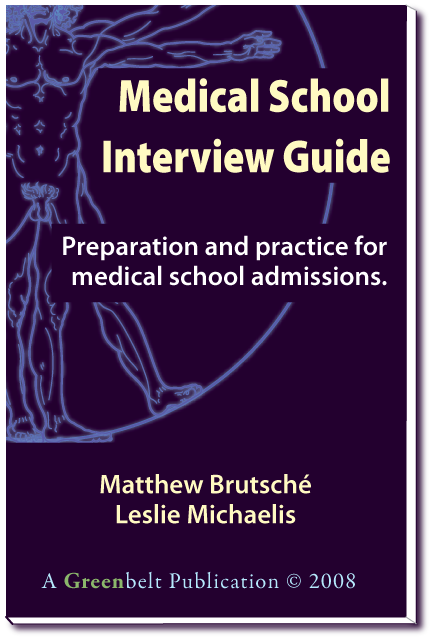Who is your interviewer?
Understanding interviewers’ motivations and the roles they occupy outside of the interview process will help you establish a tone for your presentation. Interviewers are predominantly members of the faculty, but may also be alumni who participate for personal or professional reasons (a mandate of their college or university, a notch on their resume belt, as support for their political aims, or perhaps out of an altruistic desire to influence the lives of future medical professionals).
Often, interviewers are highly skilled in their field of specialty, but not necessarily trained to evaluate individuals in an interview setting. As a result, your interviewer is likely to view you from his or her personal perspective and with very little objectivity about your qualifications as a prospective student. Prejudices regarding your undergraduate school, the focus of your research, and your personal history are likely to taint an interviewer’s perception of you. Circumventing the obstacles of your interviewer’s biases and prejudices, therefore, may appear to be an insurmountable task.
Since you cannot reasonably decipher the psyche of each potential interviewer, a more productive approach to overcoming your interviewer’s preconceptions is to have a clear vision of your goals and to be capable of eloquently disseminating your aims to anyone. Studying the intricate details of what you wish to accomplish, and, in the process, clarifying the path you desire, will have far more benefit than catering to the specific audience to whom you will be speaking.
- Create a well-formed goal statement for academic and professional achievement
- Know what is required to obtain your goals
- Determine how attendance in the medical program will help you obtain them
- Identify situations from your history which indicate that you are capable of meeting the challenges of medical school in an effort to achieve the goals you have outlined
Your attire, language, speech, and countenance will also have an enormous impact on how the interview proceeds. Some of your interviewers will be difficult people. They may be uncommunicative, adversarial, competitive, argumentative, or wholly disinterested. Regardless of your interviewer’s disposition, it will be your responsibility to remain calm and collected, smile, and maintain open body language. Review the essential Dos and Dont’s of interviewing and practice rigorously to enhance your confidence. It is critical to demonstrate that you know how to keep your composure during tense interactions, and interviewers expect honesty and professionalism.


